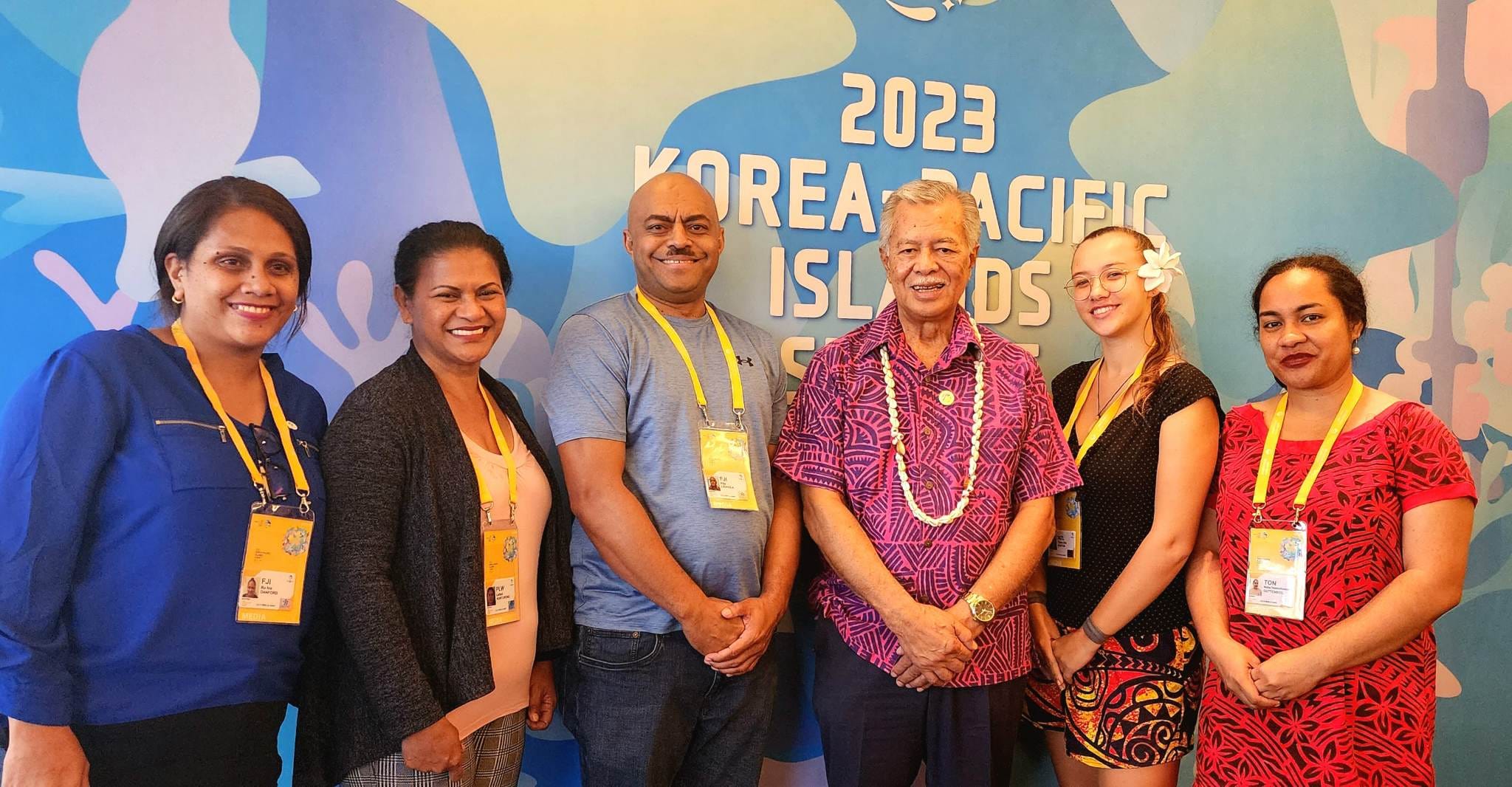Pacific Summit to discuss Japan’s plan to release nuke waste water into the Pacific
Tuesday 30 May 2023 | Written by Supplied | Published in Pacific Islands, Regional

Pacific media team briefing with Forum Secretary General Henry Puna ahead of the inaugural Korea - Pacific Islands Summit. Photo: SUPPLIED BY PITA LIGAIULA.
Concerns raised by Pacific Leaders about Japan’s plan to discharge over a million tonnes of contaminated nuclear wastewater into the Pacific Ocean, over the next four years will feature prominently on the agenda of the inaugural Korea – Pacific Leaders’ Summit.
The Korea – Pacific Islands Summit is the first multilateral Summit to be held in Korea since the Yoon Suk Yeol administration took office.
Forum Secretary General, Henry Puna said the issue was discussed at the meeting with Foreign Minister Park Jin in Seoul.
A team of South Korean experts returned home Friday after completing their six-day trip to Japan to conduct an on-site inspection of the crippled Fukushima nuclear power plant ahead of its controversial release of contaminated water.
“The fact that they have dispatched some experts to do their own inspection is an expression that they are taking the issue very seriously,” said Puna.
The 21-member team, headed by Korean Nuclear Safety and Security Commission Chairperson Yoo Guk-hee, assessed whether the tonnes of contaminated water can be treated so as to be safe enough to be discharged into the ocean.
“It is something that is of very serious concerns to all of us in the Pacific.
“I think our people should be made aware that this is the only nuclear plant that has been severely damaged by natural causes during the earthquake and the tsunami. So, our scientists that we hired to advise us have some serious concern about the quality of the water.
“But at I’m pleased that as a result of my visit with our Forum chair in Tokyo last February we met with the Prime Minister and asked him not to discharge the water until we all agree that it is safe to do so and the Prime Minister agreed, Puna told Pacific journalists in Seoul.
Puna is hoping the Korean findings might have a role to play in Japan’s plan to defer the releasing of nuke waste water into the Pacific Ocean.
“I’m hoping that the visit by expert from Korea might have a role to play in deferring the discharge until everybody is happy based on independent, verifiable scientific assessment and evidence that it is safe discharge the water.
“I’m sure you understand that in the Pacific, we have a long history of nuclear contamination and legacy and we just don’t want to be caught in that cycle again.
“It is bad enough that some of the issues haven’t been sorted out and we need to have those cleared off the table immediately, hopefully,” he said.
Puna has also ruled out the Pacific taking Japan to court over its plan to release nuke waste water into the ocean.
“I think probably the court option is a bit late at this stage and there are some uncertainties about the basis for a legal challenge based on various interpretations of various conventions.
Puna said that later this week, there will be another round of meeting between independent experts and Japan.
He said the Forum is using all its diplomatic channels to engage with Japan on the Fukushima nuclear issue.
“I have some concerns about that process when you get some scientists together around the table. If there’s one disagreement about anything they can never agree. And I think this is where we are at with the experts.
“My own feeling is that it is important to have a political management of the process on the engagement and discussion and this is where our Forum Chair and Troika will come in very handy,” said Puna.
SG Puna also highlighted the Pacific concerns during the World Climate Industry expo in Busan on the weekend.
“Our Leaders continue to reiterate strong concerns for the significance of the potential threat of nuclear contamination, to the health and security of the Blue Pacific, its people and prospects, and the importance of ensuring international consultation, international law, and independent and verifiable scientific assessments before any discharge can be allowed to proceed.
“Our Pacific Leaders endorsed the 2050 Strategy for the Blue Pacific Continent last year. At the heart of the 2050 Strategy lies the recognition that our ocean geography, ocean resources, and ocean identity, are central to our future well-being and security,” said Puna.
By Pita Ligaiula in Seoul
PACNEWS














































